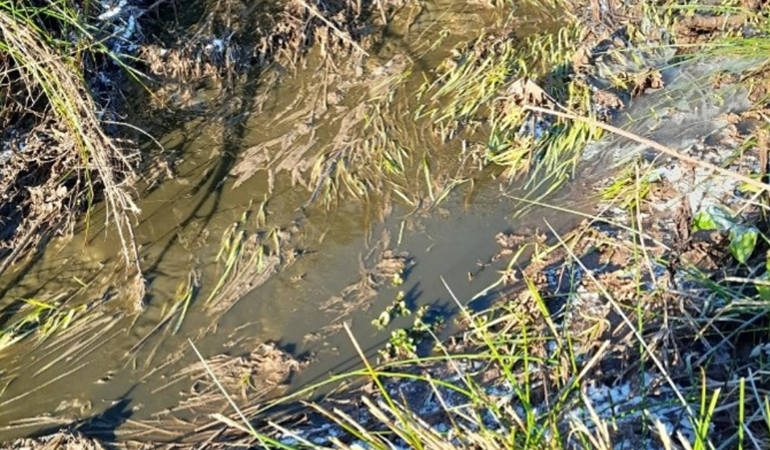Monmouthshire man fined for pollution incidents

Monmouth was polluted by sewage 2,679 times in 2023
lasting 24,389 hours – that’s 2.82 years!
– but monitoring was disabled in some locations, so could be more
https://top-of-the-poops.org/constituency/monmouth
Cynon Valley was polluted by sewage 2,967 times in 2023
lasting 19,940 hours – that’s 2.31 years!
– but monitoring was disabled in some locations, so could be more
https://top-of-the-poops.org/constituency/cynon-valley
Dŵr Cymru Welsh Water works to protect rivers and other waterways by treating the wastewater from our homes and businesses and safely returning it to the environment. It requires huge amounts of equipment and thousands of kilometres of sewers.
A Monmouthshire man has been made to pay £4,813 in fines and costs for two separate incidents that polluted the Wecha brook, a tributary of the river Usk in Monmouth last year.
Mr Brian Parry of Ton Farm, pleaded guilty to two charges under the Environmental Permitting (England and Wales) Regulations 2016 Act to causing a water discharge activity, namely the discharge of poisonous, noxious or polluting matter, namely slurry and milking parlour washings to an inland freshwater, at Cwmbran Magistrates Court last Thursday 9 May.
Officers from Natural Resources Wales (NRW) first visited Ton Farm on 19 January 2023.
Upon arrival they found that slurry was spilling over the top of one of the earth bank slurry lagoons and flowing across a field and into an unnamed tributary of the Wecha brook.
Samples taken and analysed in NRW’s laboratory in Swansea showed significant levels of ammonia and suspended solids present in the watercourse. This can have a negative impact on fish and other invertebrates, clogging their gills and reducing light penetration in the water.
When the problem was highlighted to Mr Parry, immediate steps were taken to stop the discharge and remove the slurry from the earth bank slurry store.
On 14 September 2023, officers from NRW visited the site again, following a separate report of suspected pollution to the Wecha brook.
Upon investigation they found that a drain leading from the milk parlour on site had become blocked, causing parlour washings and milk to overspill into a surface water drain which discharged to a tributary of the Wecha brook.
At the point where the drain discharged, the white discolouration was clearly visible and grey and sewage fungus was covering the bed of the brook.
Samples taken by officers showed that the pollutants had an impact on the macroinvertebrate in the watercourse for at least 800 metres and potentially up to 2.4 km downstream.
Milk is a highly polluting substance. Bacteria in a water course will feed on the milk, using up all the oxygen, which would otherwise be used by fish and other animals living in the watercourse.
Peter Jones, Environment Officer for Natural Resources Wales said:
These pollution incidents could have had a devastating impact on the Wecha brook and the wider Olway catchment leading to poor water quality and a decline in the ecology of the watercourse.
Slurry is high in ammonia which is toxic to aquatic life and can cause fish kills. The excess nutrients can also trigger algae blooms which impact water quality and can lead to the decline in the amenity value of our inland water courses.
This incident at Mr Parry’s property was avoidable and should never have happened
We recognise that sometimes things do go wrong, but we urge farmers that if they know they have caused pollution, to report it to us at NRW immediately by calling 0300 065 3000. The sooner we know about it, the sooner we can work with them to try and reduce the impact on the environment.
Mr Parry was fined £371 and ordered to pay costs amounting to £4,442.
Mr Parry has previously been prosecuted by NRW for environmental offences in 2010 and 2014 for discharging slurry to watercourse respectively, receiving fines and costs of £2,258 in 2010 and £4,098 in 2014.
To report a pollution incident call NRW’s 24-hour incident hotline on 0300 065 3000 or visit NRW’s Report an Incident page.


